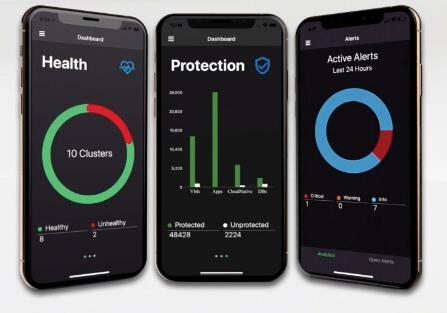21 May 2020

Known as Cohesity Helios, the new service allows IT professionals to monitor the health and performance of their Cohesity infrastructure. They can also get alerts about any anomalies in the system, such as ransomware attacks
Microsoft partner and hyper-converged secondary storage business Cohesity has introduced a new mobile application to enable access to its enterprise data management platform through a smartphone.
Known as called Cohesity Helios, the new service allows IT professionals to monitor the health and performance of their Cohesity infrastructure. They can also get alerts about any anomalies in the system, such as ransomware attacks.
Furthermore, the software-as-a-service (SaaS) data management offering enables users to see, manage and take action on their data whether it is located in data centres, in the cloud or at the edge. For example, the app’s dashboard provides a way to see available storage capacity and view data sources. It also uses machine learning to detect anomalies and repel or mitigate ransomware attacks.
“In today’s always-on business environment, companies need the ability to respond quickly to critical data issues at any time, from any location,” said Vineet Abraham, senior vice president of products and engineering at Cohesity. “Cybercriminals don’t just work during office hours and having a way to monitor the health of your data clusters from a mobile device 24 hours a day, seven days a week, and receive notifications that could uncover a ransomware attack in action, could save your organisation millions of dollars and keep brand reputations intact.”
The Cohesity Helios mobile app is now available for download via the Android Play Store and the Apple App Store.
In 2018, the company announced integrations with Microsoft that enable customers to deploy multiple secondary apps and data on a hybrid cloud architecture.










